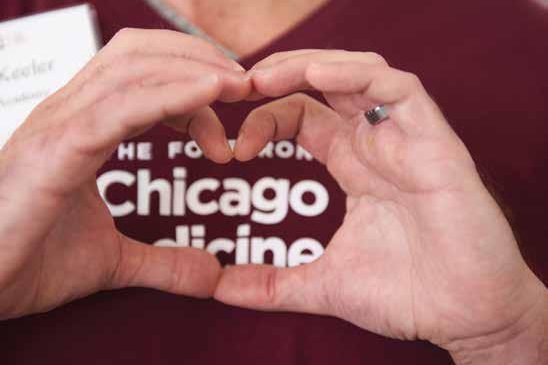Page title
Serving Chicago\’s South Side
UChicago Medicine is located within the Hyde Park neighborhood on the South Side of Chicago. The South Side is a storied and unique collection of vibrant, resilient, culturally rich and diverse communities.
left
no-repeat;left top;;
auto
0px
Page title
Internationally renowned for breakthroughs in medical research, leading-edge practices, and state-of-the-art facilities, the University of Chicago is heralded locally for involvement with, and accessibility to, its neighbors.
As a mainstay in historic Hyde Park since 1892, the university has proudly hosted, healed and educated the area’s dynamic population for generations. Hyde Park is a vibrant, socio-economically diverse, predominantly African American community.
Steeped in African-American heritage and history, the South Side is marked by deep social bonds anchored by vital neighborhoods and faith-based organizations. However, generations of structural inequality and neglect have contributed to the erosion of the critical social, economic, and health ecosystem necessary to adequately meet the needs of this community.
left
no-repeat;left top;;
auto
0px
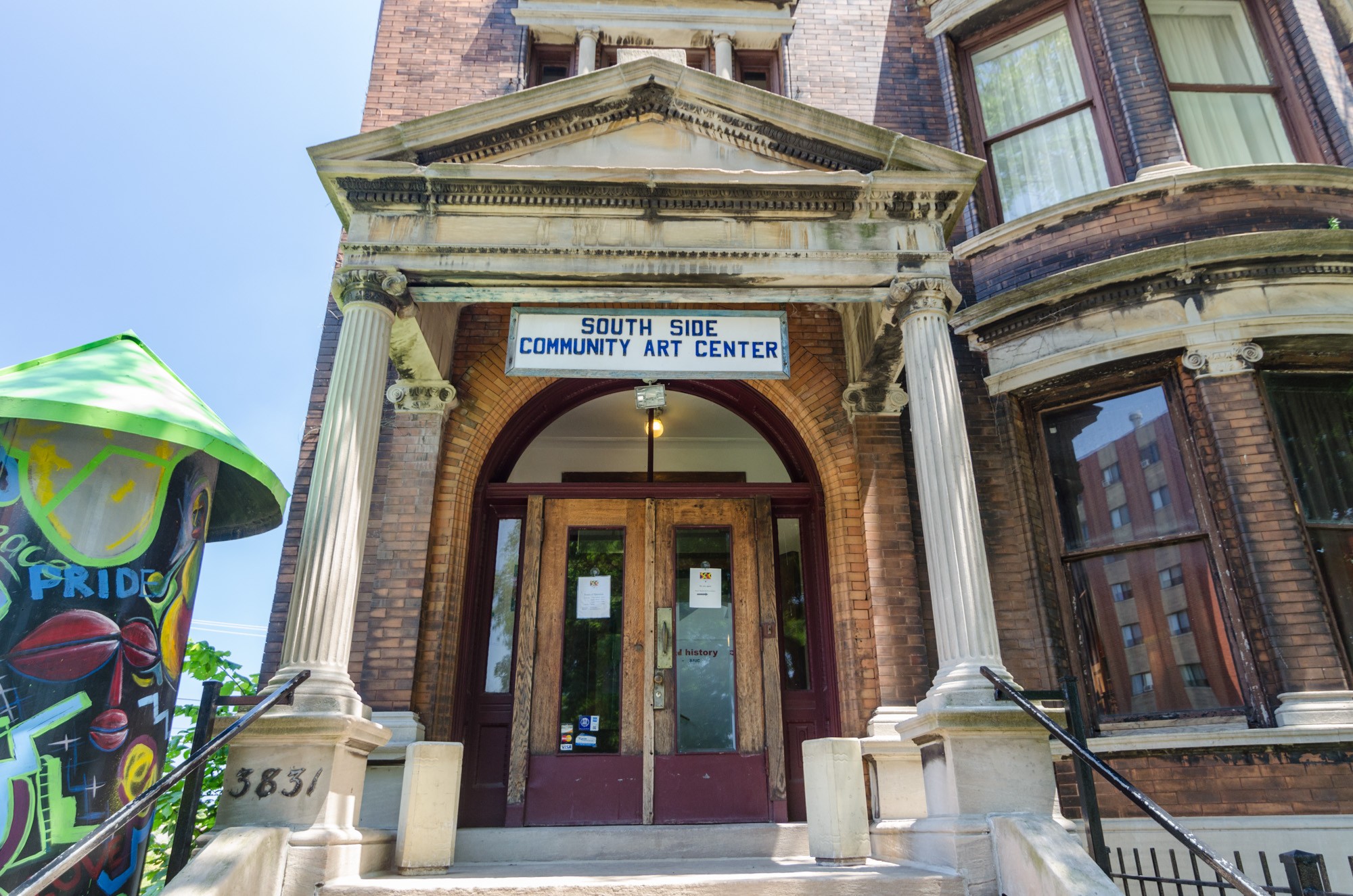
South Side Community Art Center, photo by Eric Allix Rogers for Open House Chicago.
https://openhousechicago.org/sites/site/south-side-community-art-center/
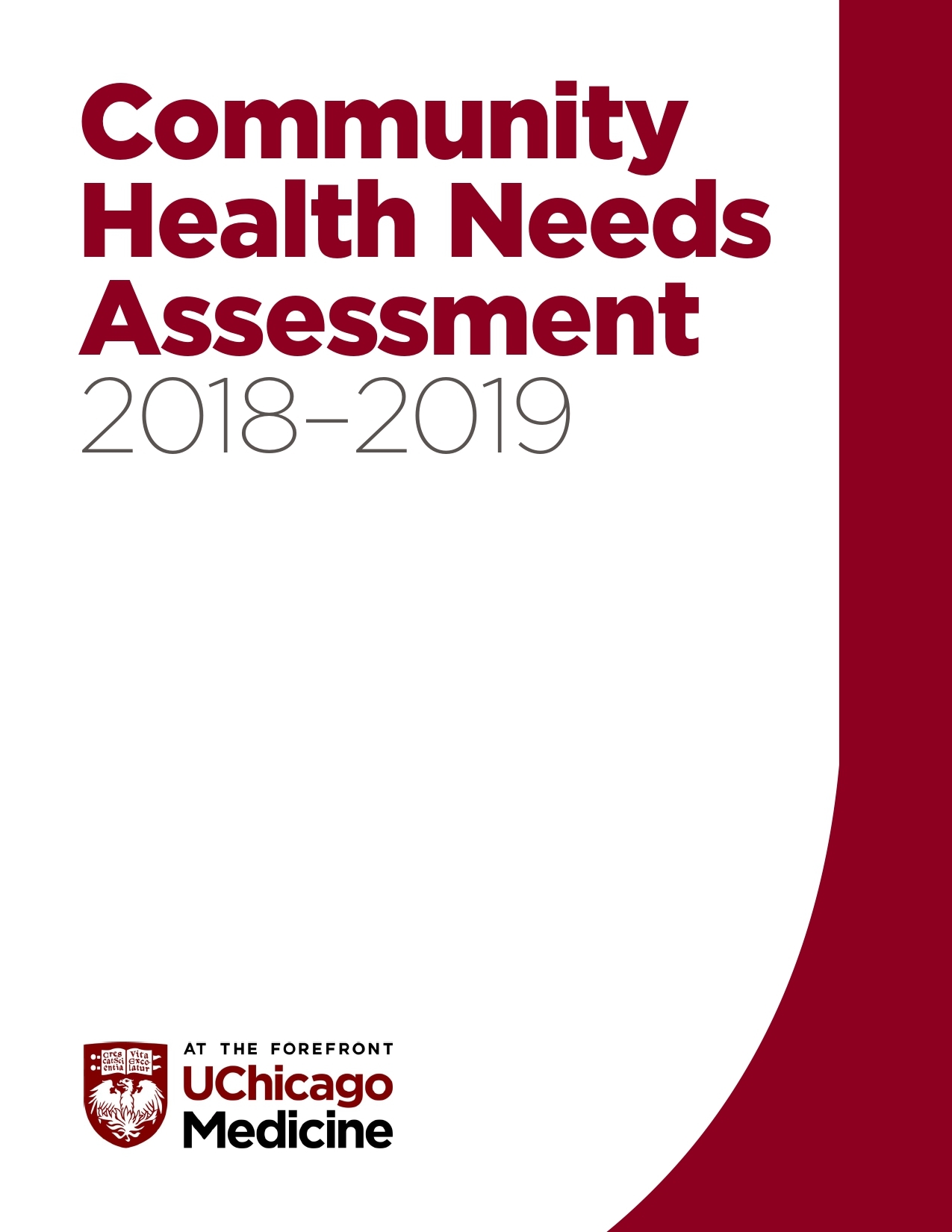
https://issuu.com/communitybenefit-ucm/docs/ucm-2019-chna?fr=xKAE9_zU1NQ
Addressing the health needs of the community is essential to improving residents’ quality of life. The University of Chicago Medicine is dedicated to enhancing health and wellness in South Side communities. Recognizing that there are contributing factors at the roots of these complex issues — such as low income, limited education, violent crime, unemployment and other social determinants of health
— we aim for solutions that extend beyond the point of medical care. Today, the South Side of Chicago suffers among the worst economic, health, social, and violence disparities in the United States. Currently, the unemployment rate of those living in the UCM service area (21%) is three times the national unemployment rate. Half of the community members are at risk for food insecurity according to the Greater Chicago Food Depository’s estimates. Residents of the UCM service area suffer significantly higher rates of chronic health conditions such as asthma, diabetes, obesity, breast cancer, STIs and HIV.
At the University of Chicago we are honored to serve a truly diverse patient population that includes the residents of Hyde Park, patients from many other neighborhoods throughout Chicago and its suburbs, and patients referred to our medical center from throughout the Midwest.
no-repeat;left top;;
auto
dots
default
#e5e0e0
Our pledge to our South Side neighbors
Our pledge to our South Side neighbors
The University of Chicago Internal Medicine Residency Program stands firm against racism in health care and in society.
As a residency program with a diverse population of patients, residents and staff, we have seen firsthand the devastating effects of systemic racism on the health and well-being of our community.
Equitable health care
We are committed to providing equitable health care to all patients.
Long-term partnerships
We seek to address inequities within Chicago’s South Side through long-term partnerships with community-based organizations and advocacy.
Diverse and inclusive environment
Within our residency program, we seek to challenge our own implicit biases, educate ourselves on health disparities, and build a more diverse and inclusive environment that enables all trainees to reach their unlimited potential.
Read our full statement about the University of Chicago Internal Medicine Residency Program’s commitment to address racism here.
The University of Chicago is a world-class institution with deep roots in its local community and a commitment to internal ethnic diversity. We recognize the benefits and importance of a diverse faculty and housestaff and are committed to this University-wide goal by working to increase diversity within the University of Chicago Internal Medicine Residency Program.
no-repeat;left top;;
auto
dots
default
#e5e0e0
Research on healthcare disparities
Research on healthcare disparities
The University of Chicago has many dedicated faculty members pursuing research in healthcare disparities. There are many opportunities for housestaff and medical students to work with these faculty members and get involved with ongoing healthcare disparities research. If you would like additional information or wish to be put in touch with any of the faculty, please contact Dr. John McConville, Program Director, University of Chicago Internal Medicine Residency Training Program.
Here are a few of our faculty working on healthcare disparities.
no-repeat;left top;;
auto
Marshall Chin
Marshall Chin
Dr. Chin is an expert in healthcare disparities in medicine. He is frequently invited to present his work at national conferences and serve on policy committees.
He serves on the National Institute on Minority Health and Health Disparities National Advisory Council and Centers for Disease Control and Prevention (CDC) Community Preventive Services Task Force. He co-chairs the National Quality Forum (NQF) Disparities Standing Committee and is a former President of the Society of General Internal Medicine (SGIM). Dr. Chin was elected to the National Academy of Medicine in 2017.
He is also the director of Finding Answers: Solving Disparities through Payment and Delivery System Reform, an initiative that looks at ways to provide support and financial incentives for healthcare providers to ensure equitable care for patients across racial and income lines.
Dr Chin is the Co-Director of Bridging the Gap: Reducing Disparities in Diabetes Care with Dr. Peek.
no-repeat;left top;;
auto
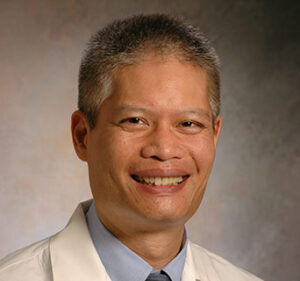
large
400
center
50
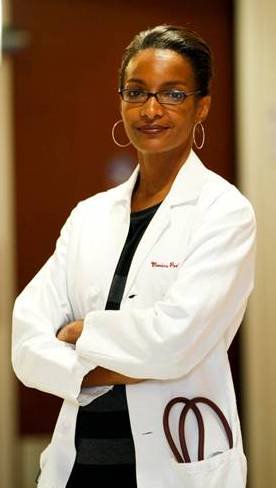
large
400
center
Monica Peek
[one_second]
Monica Peek
Dr. Peek specializes in general internal medicine and preventive health for adults. She has a particular interest in reducing healthcare disparities and concentrates these efforts on diabetes care and breast cancer-screening education for African American patients.
Dr. Peek aims to improve diabetes care and medical outcomes for patients on the South Side of Chicago.
Also, in her role as one of two inaugural Faculty Fellows in the Bucksbaum Institute for Clinical Excellence at the University of Chicago Medicine, she explores how racial and cultural barriers impact physician-patient relations and shared decision-making.
[/one_second]
[one_second]
See some of Dr. Chin and Dr. Peek’s work highlighted in these articles:
Seeking Solutions to Reduce Health Disparities
University of Chicago Leads Initiative to Improve Diabetes Care
[/one_second]
no-repeat;left top;;
auto
Monica Vela
Monica Vela
Dr. Vela is the Associate Dean for Multicultural Affairs at the University Of Chicago Pritzker School of Medicine, where she created a first-of-its-kind Health Care Disparities in America course, which is required for all first-year medical students and promotes health care equity and advocacy.
Vela regularly travels across the country teaching educators how to create similar courses at their institutions based on local health disparities data. She also serves as associate vice chair for diversity in the Department of Medicine, advocating for the recruitment, retention, scholarship, leadership and mentorship of underrepresented students, residents, fellows and faculty.
The daughter of Mexican immigrants, she completed medical school at Pritzker and residency at the University’s Internal Medicine Residency program. Vela’s research focuses on medical education on health disparities, care of patient populations with limited English proficiency and increasing diversity within the medical profession.
She is also a winner of the UChicago Diversity Leadership Award and is a mentor for many of our residents.
no-repeat;left top;;
auto
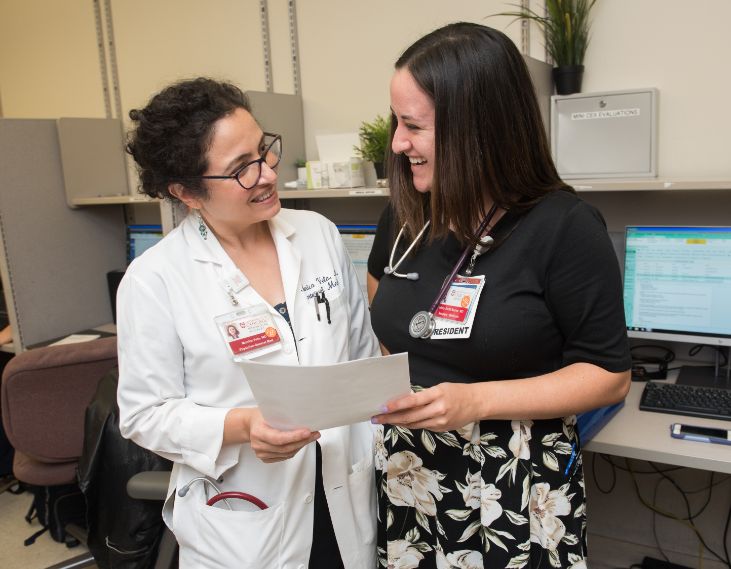
large
400
center
50
